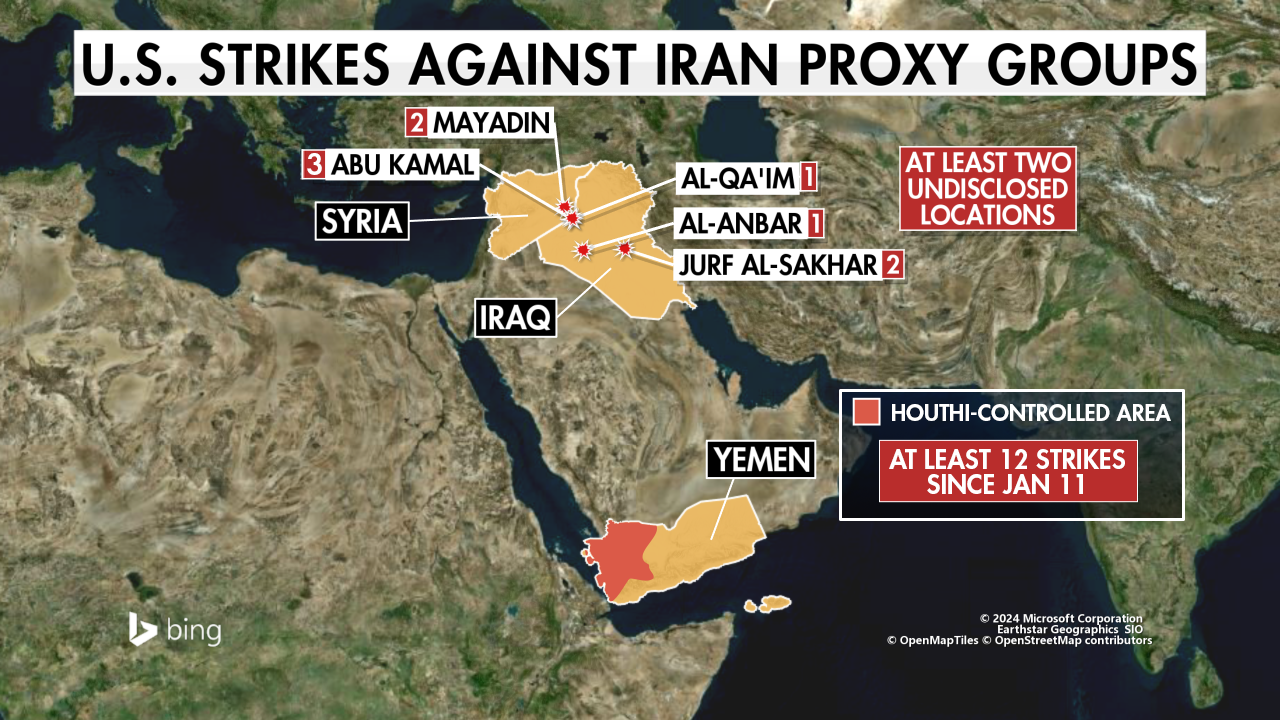US-Iran Negotiations: Potential Threats To Israel's Strategic Position

Table of Contents
Renewed Nuclear Deal: Implications for Israeli National Security
A renewed nuclear deal with Iran carries significant implications for Israel's national security, potentially undermining its deterrence capabilities and escalating regional instability.
Increased Iranian Nuclear Capabilities
A new agreement might inadvertently accelerate Iran's nuclear program. The potential for rapid advancement poses a direct threat to Israel.
- Increased uranium enrichment capacity: A larger-scale enrichment program could drastically shorten the time it takes Iran to produce a weaponizable amount of fissile material.
- Shortened breakout time: This reduced timeframe diminishes Israel's window for potential preemptive action, increasing the pressure on its decision-making processes.
- Advanced centrifuge technology: Access to more sophisticated centrifuges would allow Iran to enrich uranium more efficiently and effectively, further shrinking the breakout time.
These advancements translate to a heightened threat level for Israel. The possibility of a preemptive strike becomes more complex and risky, while the threat of asymmetric warfare and regional proxy conflicts fueled by a more empowered Iran increases substantially.
Weakened Regional Deterrence
A nuclear deal could significantly weaken Israel's capacity to deter Iranian aggression. Iran's enhanced influence in neighboring countries could create new fronts and challenges.
- Increased support for Hezbollah, Hamas, and other militant groups: Lifting sanctions could free up substantial resources for Iran to funnel into its network of proxies, escalating existing conflicts and creating new ones.
- Expansion of Iranian influence in Syria and Lebanon: This expansion would bring Iranian military capabilities closer to Israel's borders, increasing the risk of direct confrontation.
- Potential for new proxy conflicts: A more powerful Iran could embolden its proxies to launch more aggressive attacks against Israel, stretching its military resources and challenging its strategic depth.
These shifts significantly impact Israel's regional alliances and its ability to maintain control over key strategic areas, demanding a reassessment of its defense strategies.
Geopolitical Shifts and Regional Power Dynamics
The potential outcomes of the US-Iran negotiations have the power to dramatically reshape the Middle East's geopolitical landscape and power dynamics, further threatening Israel's strategic position.
Shifting Alliances
A nuclear deal could fundamentally alter alliances in the region. Israel's relationships with key partners could be affected.
- Potential for strained relations with Sunni Arab states: Some Arab states might perceive a nuclear deal as legitimizing Iran's regional ambitions, potentially straining relationships forged under the Abraham Accords.
- Impact on Abraham Accords: The normalization agreements between Israel and some Arab nations could face increased pressure if Iran's regional influence expands.
- Changing dynamics with other regional powers: Israel’s relationships with other regional powers, such as Turkey and Saudi Arabia, would need to adapt to this altered balance of power.
These shifts could significantly reduce Israel's strategic depth and complicate its efforts to counter Iranian influence.
Increased Iranian Regional Influence
The lifting of sanctions and a potential nuclear deal could dramatically amplify Iran's economic and military capabilities, posing a direct threat to Israel.
- Increased funding for regional proxies: This would enable Iran to intensify its support for militant groups, increasing the frequency and intensity of attacks against Israel.
- Enhanced military capabilities: Access to advanced weaponry and technology would enhance Iran's military capabilities, making it a more formidable adversary.
- Expanded economic influence: A stronger Iranian economy would enhance its regional leverage and ability to project power.
This increased influence would destabilize the region and present significant challenges for Israel's security.
The Israeli Response and Strategic Options
Faced with these evolving threats, Israel must consider a range of responses to navigate the complexities of US-Iran negotiations.
Military Options
Israel may explore several military options, but each carries substantial risks and potential repercussions.
- Preemptive strikes: While a potential deterrent, preemptive strikes carry the risk of escalation and significant international backlash.
- Defensive measures: Strengthening its defense systems and improving intelligence gathering are crucial, but may not be sufficient to counter all potential threats.
- Reliance on intelligence gathering: Advanced intelligence capabilities are critical for anticipating and mitigating potential threats from Iran and its proxies.
The effectiveness of any military option must be carefully weighed against the potential for wider conflict and international condemnation.
Diplomatic and Strategic Countermeasures
Alongside military options, Israel must pursue a robust diplomatic and strategic approach.
- Strengthening alliances: Fortifying existing alliances and forging new partnerships is vital to counter Iranian influence.
- International pressure campaigns: Mobilizing international pressure on Iran to curb its nuclear ambitions and destabilizing actions is crucial.
- Public diplomacy: Effectively communicating the threats posed by Iran and advocating for strong countermeasures is necessary to garner international support.
These diplomatic and strategic countermeasures, when employed effectively, can mitigate the threats to Israel’s strategic position.
Conclusion: Navigating the Complexities of US-Iran Negotiations and Their Impact on Israel
The US-Iran negotiations present significant and multifaceted challenges to Israel's strategic position. The potential for a renewed nuclear deal, coupled with the resulting geopolitical shifts and increased Iranian regional influence, necessitates a proactive and multifaceted Israeli response. The potential for increased Iranian nuclear capabilities, weakened regional deterrence, and shifting alliances create serious threats to Israeli national security. Israel must consider a range of military and diplomatic options, carefully weighing the risks and potential consequences of each approach. Staying informed about the ongoing US-Iran negotiations and their implications for Israel's security is crucial. We encourage further research and engagement with relevant organizations and experts to gain a deeper understanding of the complexities involved in these crucial US-Iran negotiations and their impact on Israel’s future.

Featured Posts
-
 Glastonbury To Host The Searchers Final Concert After 70 Years Of Music
May 31, 2025
Glastonbury To Host The Searchers Final Concert After 70 Years Of Music
May 31, 2025 -
 Air Quality Alert Minnesota Suffers From Canadian Wildfire Smoke
May 31, 2025
Air Quality Alert Minnesota Suffers From Canadian Wildfire Smoke
May 31, 2025 -
 Is This The Good Life Self Reflection And Life Assessment
May 31, 2025
Is This The Good Life Self Reflection And Life Assessment
May 31, 2025 -
 Zverevs Road To The Munich Semifinals A Comeback Story
May 31, 2025
Zverevs Road To The Munich Semifinals A Comeback Story
May 31, 2025 -
 Soaring Pet Bills Are Corporate Targets To Blame A Uk Veterinary Perspective
May 31, 2025
Soaring Pet Bills Are Corporate Targets To Blame A Uk Veterinary Perspective
May 31, 2025
